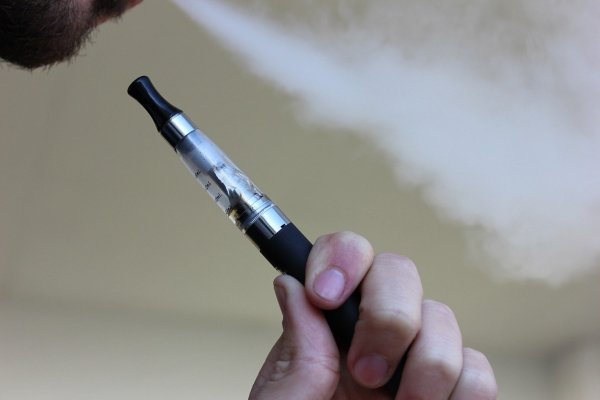
March is No Smoking Month and Northern Ireland Chest Heart & Stroke (NICHS) is using this period to remind the public just how detrimental to health smoking is as well as urge people not to take up vaping, other than in a short-term attempt to quit smoking.
Smoking is the single greatest cause of preventable illness and premature death in Northern Ireland, robbing 10-15 years of healthy life ¹ ² ³ according to the charity. Fidelma Carter, Head of Public Health at NICHS, says; “Smoking kills around 2,300 people each year in Northern Ireland which is an alarming statistic. We are concerned at the fact around 17% of the population in NI smoke.”
“We would encourage people to try and start their journey towards quitting smoking and better health this No Smoking Month. The fact smoking is the biggest cause of preventable illness and premature death will hopefully help persuade many people to kick this habit for good.”
Fidelma explains; “There are over 5,000 chemicals in a cigarette. These chemicals increase your risk of chest, heart and stroke conditions as well as other illnesses. Smokers are almost twice as likely to have a heart attack compared with people who have never smoked. Furthermore, every cigarette shortens your life by 5 minutes. When you think about the impact of smoking in terms like this it is truly shocking.”
What advice would Northern Ireland Chest Heart & Stroke give to people hoping to quit smoking this No Smoking Month, or at any other time? Fidelma says; “We understand it can be extremely difficult to give up smoking but there are wide-ranging free stop smoking support services out there to help. You are four times more likely to quit successfully if you get professional help and nicotine replacements, so we would encourage people to contact their community pharmacy or GP to find out more about the help available. The website www.stopsmokingni.info also has further information on the support available.”
“Some practical tips to help with stopping smoking include, working out your smoking habits and trying to avoid the triggers and situations where you smoke, for example during breaks at work, after meals, or when socialising. Set a date, tell family and friends and stick to it; when you feel the urge to smoke try to distract yourself as a craving only lasts three minutes; and why not put the money you save from not buying cigarettes in a jar, so you can see it building up and it serves as a visual reminder of the money you are saving.”
"The money saving aspect can be significant, but we know this is not always the key motivator to quitting smoking which is a very addictive habit to kick, particularly if you smoke to cope with other competing stressors going on in your life. Seeking out psychological and behaviour support to help you quit cigarettes, or nicotine vapes for some, is therefore very important.’’
Fidelma continues; “Some individuals may turn to e-cigarettes or vapes to aid in stopping smoking and in such cases, we recommend limiting vape usage to no more than 12 weeks. We strongly advise seeking support as mentioned above to quit smoking altogether and to help prevent prolonged dependence on vapes, particularly those containing nicotine.’’
"The long-term health implications and risks of vaping remain unclear, in the same way they once were for tobacco use in the past. Therefore, if you opt for vaping to help you quit smoking, it's best to use this for a short duration. Additionally, seek assistance from your local pharmacist or a specialised stop smoking service to kick the smoking habit and avoid developing a new long-term vaping habit which can be costly too.’’
Fidelma concludes; “It’s important to remember that it’s never too late to give up smoking and doing so is the biggest lifestyle change you can make to help reduce your risk of becoming seriously ill. The risk of serious disease starts reducing as soon as you stop smoking- breathing becomes easier and improves as lung function increases, and within one year of quitting a person’s risk of a heart attack is halved.”
For more information on stopping smoking visit nichs.org.uk/information/risk-factors/smoking
For resources and information about vaping, visit nichs.org.uk/vaping
